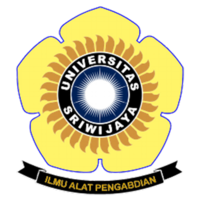Pengolahan Kotoran Ternak Sebagai Sumber Pupuk dan Nilai Tambah Ekonomi Masyarakat Dimasa Pandemi
Abstract
Sjofjan O. 2021. Processing of livestock waste as a source of fertilizer and community economic value during pandemic. In: Herlinda S et al. (Eds.), Prosiding Seminar Nasional Lahan Suboptimal ke-9 Tahun 2021, Palembang 20 Oktober 2021. pp. 19-26. Palembang: Penerbit & Percetakan Universitas Sriwijaya (UNSRI).
In the era of the Covid-19 pandemic, starting last year, it has limited the space for human activities from all professions of community life activities, both formal and non-formal. The existence of the 5 M Health program activities has an impact on humans working and living at home which causes a sense of saturation so that many people seek independent activities that are useful with activities around the house by planting, gardening, raising livestock, etc. On the other hand, efforts to increase immunity in overcoming the transmission of the Covid-19 pandemic will also have an impact on increasing demand for food from animal protein. This has a positive impact on livestock rearing and results in increased production of livestock waste. This encourages the community to innovate and work together to utilize and benefit by processing livestock waste as an addition to the community's economy. This livestock waste business can be done by selling fertilizer as organic fertilizer, liquid fertilizer, granulated fertilizer, urine fertilizer and biogas residue and even with other processing it will produce fish feed made from using biogas liquid residual sludge. During the Covid-19 pandemic, many Indonesians have carried out activities to process livestock waste into fertilizers with various types and several packages that can add value to the community's economic value.
Keywords
Full Text:
PDFArticle Metrics
Abstract view : 495 timesPDF - 1054 times
Refbacks
- There are currently no refbacks.

